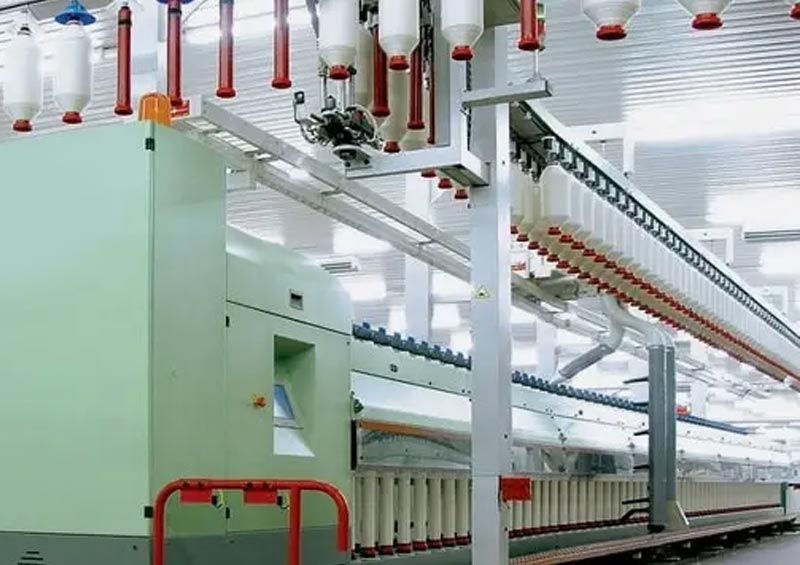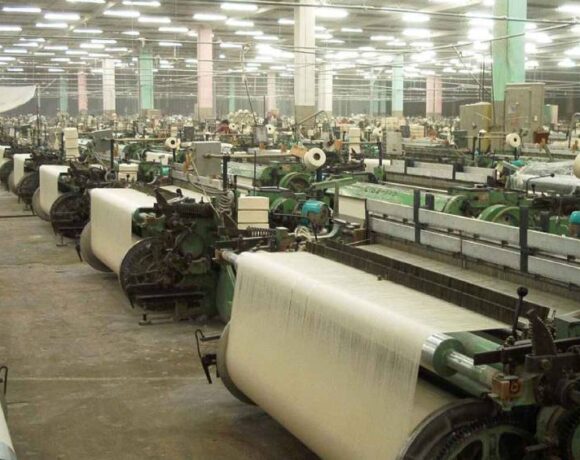Tamil Nadu MSME Spinning Mills To Stop Production From July 15

MSME spinning mills in Tamil Nadu have unanimously decided to stop production and sales of yarn from July 15, 2023, due to heavy losses suffered by the spinning industry.
This decision was taken at an emergency meeting of MSME Spinning Mills Associations’ held on July 12.
Members of the South India Spinners Association (SISPA) and India Spinning Mill Owners Association (ISMA, both based in Coimbatore participated in the emergency meeting.
According to a statement issued by SISPA, the spinning industry in Tamil Nadu has been facing unprecedented losses for several months and for the first time in the last 20 years, exports of yarn and textiles have declined by around 28 percent.
As per the statement, considering the cost of cotton and conversion costs, spinning mills are currently incurring a loss of Rs 40 per kg, and so a mill having about 10,000 spindles producing 2,500 kg of yarn per day, is incurring a loss of Rs 100,000 per day.
Due to this, these mills are unable to repay bank loans, make cotton purchase payments, pay electricity bills, are unable to pay government dues like GST, PF and ESI and if this situation continues, the spinning mills will soon turn into non performing assets (NPA).
Giving the reasons for the current situation, the statement said that due to 11 percent import duty on cotton, the price of domestic cotton is 15 percent higher. As a result, India has lost many international orders and is unable to compete with neighbouring countries in the export of yarn, fabric and garments.
“Over the past several months, bank interest rates have gradually increased from 7.5 percent to 11 percent. As a result, the cost of yarn production has increased from Rs 5 to Rs 6 per kg,” the statement informed.
Tamil Nadu Generation and Distribution Corporation (TANGEDCO) has also increased Retail Tariff Petition for Low Tension Consumers (LT & LT-CT) and High Tension Consumers (HT),
Multi Year Tariff (MYT) and tariff increased during peak hours, due to which production cost too has gone up by Rs 6 per kg.
The statement added that the Government of India had provided short-term loans under the Emergency Credit Line Guarantee Scheme (ECLGS) to revive and rehabilitate the industry. Mills which availed these loans used it to overdue bank loans, electricity bills, labour wages, ESI and PF dues.
The payment for these ECLGS loans have started and have now created an additional burden on the spinning mills and also increased the cost of production by Rs 5 per kg.
There is unrestricted import of yarn and fabrics from countries like China, Vietnam and Bangladesh. Due to this, the entire textile value chain of the country has been greatly affected.
The statement has requested the Government of India to immediately withdraw the 11 percent import duty imposed on cotton and also requested the Government of India to immediately reduce the interest rates of the banks to the previous level of 7.5 percent.
The statement also requested that the outstanding short-term loan of ECLGS be restructured and provide fresh ECLGS loan as given earlier, while providing six months holiday period and seven years repayment period at a lower rate of interest.
Considering the slowdown in the industry, the spinning mills association requested the government of India to provide a two years moratorium and restructure the existing term loan, while ensuring that there are not any stringent rules by Reserve Bank of India (RBI) in moratorium for spinning sector.
The statement noted that there is an over-capacity in the spinning industry and so it urged the government to not grant any subsidy or concession to set up new spinning units.
In ending, the associations requested the Government of India to take appropriate measures to promote the export of yarn and fabrics and take steps to monitor and prevent the imports of yarn and fabric.















